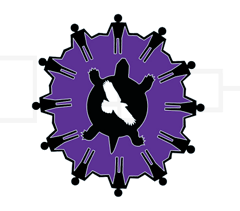Abstract
Through indigenous epistemologies a holistic health framework is promoted and indigenous concepts like two-eyed seeing offer critical decolonizing conduits for knowledge translation and enhanced health outcomes. Yet, in health care settings dominance of scientific research-based evidence downplays tacit knowledge. For enhanced health outcomes in indigenous community settings, effective knowledge translation is essential through synthesis of research-based explicit knowledge and tacit know-how adapted to local needs. This paper discusses essential characteristics of effective knowledge translation practices, and presents two examples of best practices of knowledge translation in indigenous contexts.
Recommended Citation
Roy, Selvi and Campbell, Barbara
(2015)
"An Indigenous Epistemological Approach to Promote Health Through Effective Knowledge Translation,"
Journal of Indigenous Research: Vol. 4:
Iss.
2015, Article 2.
DOI: https://doi.org/10.26077/gwjd-0p42
Available at:
https://digitalcommons.usu.edu/kicjir/vol4/iss2015/2

